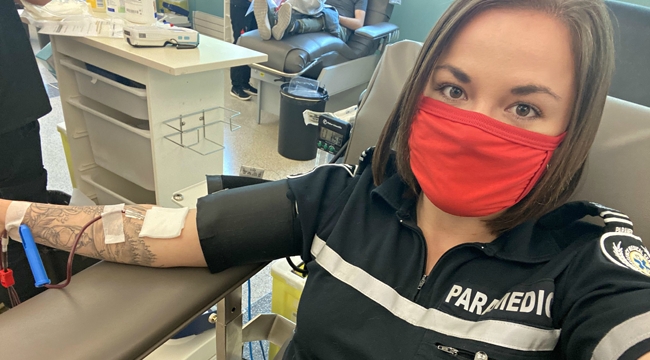New research project to improve understanding of COVID-19 immunity
New funding from the Canadian Institutes of Health Research (CIHR) for one of Canadian Blood Services’ scientists will help answer questions about immunity for people who have recovered from COVID-19.
“Because the virus that causes COVID-19 is new, there are many unanswered questions about immunity among people who survive it,” says Dr. Steven Drews, associate director of microbiology at Canadian Blood Services.
“We see that there’s some level of immunity happening, but we don’t know which antibody levels provide immunity, or how long that immunity lasts. Those are some of the questions my team will be exploring.”
People who contract and recover from COVID-19 usually have antibodies in their blood from fighting off the virus. Another study at Canadian Blood Services is establishing how common these antibodies are among blood donors in general.
The presence of antibodies often means that a person has some level of immunity to the disease they battled. With COVID-19, however, it’s unclear which factors influence the strength of that immunity or how long that immunity lasts.
The funding of just over $1M comes through the CIHR’s second rapid research funding competition, with support from Alberta Innovates. The competition is funding projects to help equip researchers and policymakers with the evidence they need to respond to the COVID-19 pandemic.
Dr. Drews’ team at Canadian Blood Services, the National Microbiology Laboratory, the University of Alberta, the University of Toronto and Lunenfeld-Tanenbaum Research Institute Mount Sinai Hospital, will study 1,500 leftover blood samples from Canadian Blood Services donors each month for a year. They will analyze the concentration of antibodies in the blood samples, and test how effective they are at neutralizing the coronavirus. Doing this testing of about 18,000 samples over the course of a year will help provide a fuller picture of how immunity evolves over time.
Epidemiologists at Canadian Blood Services, led by Dr. Sheila O’Brien, are part of the team and will study the impact of geography, age and time of collection on immunity.
The evidence generated by this project will inform health policy by providing a better understanding of COVID-19 immunity and any patterns specific to Canada’s population.
“The more we know, the more of an advantage we will have as we move forward through this pandemic, including if we see additional waves,” says Dr. Drews.



